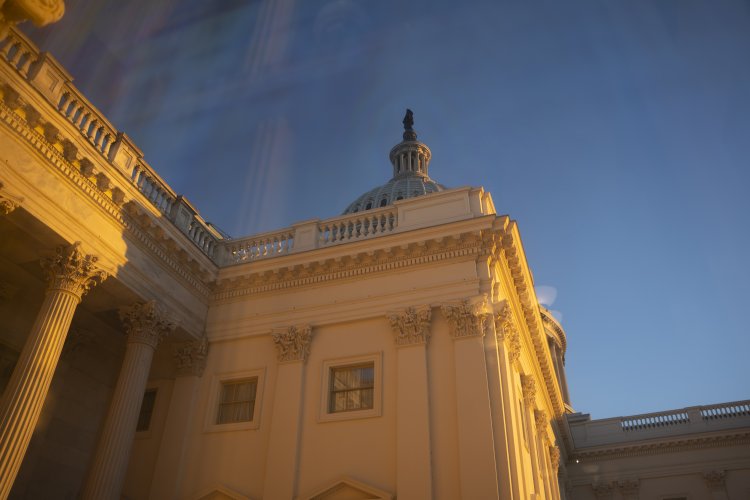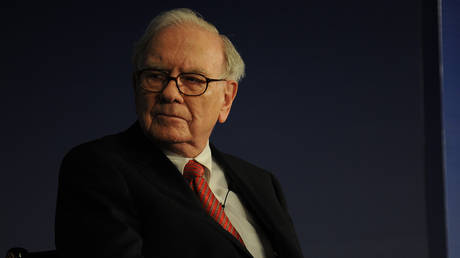Trump ignites lobbying conflict over daylight saving time
The president's recent remarks, combined with fresh movements in Congress, have lobbyists poised to take action.

After urging Congress to “eliminate Daylight Saving Time” in December, Trump referred to the issue as a “50/50 issue” in March, but this month he indicated that lawmakers should consider making daylight saving time permanent. Such a move would result in extended evening daylight and eliminate the need for most Americans to adjust their clocks twice yearly.
“Very popular and, most importantly, no more changing of the clocks, a big inconvenience and, for our government, A VERY COSTLY EVENT!!!” Trump stated in a post on Truth Social.
His latest remarks, coming just after a hearing conducted by Sen. Ted Cruz’s Commerce Committee on the topic, have ignited renewed activity among a small yet fervent group of lobbyists and advocates. These groups include those who would gain from permanent daylight saving time, as well as those who prefer to retain standard time. This debate pits the golf industry and retail sectors against sleep specialists, Christian radio broadcasters, and passionate advocates on both sides.
These advocates are now working on outreach efforts directed at the Trump administration, including Elon Musk’s Department of Government Efficiency and Robert F. Kennedy Jr.’s Department of Health and Human Services, as well as congress members who made previous attempts to pass permanent daylight saving time legislation in 2022 without success.
Among conservative influencers, interest in the issue is growing. Jack Posobiec, a prominent MAGA podcaster with millions of social media followers, is promoting the idea of permanent standard time to his vast audience. In a recent post on X, Posobiec referred to standard time—which allows for more morning sunlight—as “God’s time.”
"I feel like this is all playing out just like it did in the 70s when people got sick of the time changes, but the extra darkness in the winter became extremely unpopular and unsafe,” Posobiec said in a text message. “So we might end up just going back to where we started."
The U.S. briefly adopted permanent daylight saving time during President Richard Nixon's administration, but it was quickly reversed following concerns from education advocates regarding safety for children commuting to school in the dark.
Advocates on both sides of the daylight saving time debate face the daunting task of not only winning Trump’s support but also parsing his convoluted position on the matter and whether he might be swayed to alter his views. In interviews, advocates expressed a belief that Trump could be affiliated with their cause despite his mixed messaging.
Ultimately, Trump's involvement will be crucial for any congressional movement regarding this issue. The White House did not respond to a request for comment.
Jay Pea, president of Save Standard Time—an organization run by volunteers in conjunction with sleep medicine experts—voiced concerns in an interview that Trump’s comments could bolster support for permanent daylight saving time, stating, “We need to stop that.”
“We have been hopeful for the president's Make America Healthy Again agenda,” Pea added, noting that “permanent daylight saving time might profit the special interest of golf but would undercut every single American's sleep health.”
Proponents of permanent standard time argue that it provides numerous health benefits by maintaining natural circadian rhythms, crucial for sleep. They also cite Gallup research from last year indicating a preference among Americans for standard time.
“Many people link daylight savings time to summer, so they think it must be better because, you know, it's summertime,” said Karin Johnson, a sleep medicine doctor and member of the American Academy of Sleep Medicine’s advocacy committee, during an interview. “It was certainly disappointing to see [Trump] come out more clearly in theory toward permanent daylight saving time. That could certainly sway some politicians, but he also changes his position very often."
Johnson, who serves as vice president of Pea’s organization, noted her engagement with Cruz’s committee staff in March, believing it contributed to the recent hearing where she testified. She has also been advocating for the benefits of standard time to the Department of Government Efficiency and HHS, arguing that adopting standard time could enhance government employee productivity. Both agencies did not respond to requests for comments.
Supporters of permanent daylight saving time argue that increased evening light leads to more opportunities for outdoor activities and economic advantages, particularly for golf and retail sectors—areas that resonate with the president.
National Golf Course Owners of America CEO Jay Karen, who also testified at the Commerce Committee hearing, expressed that he was not surprised by Trump’s comments, noting that they have yet to establish direct contact with him.
“He's a golfer and golf course owner, so he respects sunshine in many ways," Karen said.
The National Religious Broadcasters, representing creators of Christian radio, television, and online content, has opposed permanent daylight saving time. The group expresses concerns because the Federal Communications Commission mandates that AM stations cut back on signal strength at night, preventing interference between channels. Permanent daylight saving time would reduce morning daylight, limiting the operational hours of these stations and impacting revenue.
Michael Farris, general counsel for NRB, mentioned that while the organization has previously engaged mainly with Congress, it is now shifting its focus toward the White House. Trump has previously shown support for another priority of NRB—the requirement for AM radios in new vehicles—and Farris has not dismissed the possibility of pairing that agenda with discussions surrounding clock-setting legislation.
"We're open to any deals that help AM radio,” he stated.
The debate over whether to adopt standard time or make daylight saving time permanent remained relatively obscure until 2022. During that year, a bipartisan group of senators successfully navigated a bill through the Senate with unanimous consent designating daylight saving time as the permanent standard, except in states that already observe permanent standard time.
Many senators were taken aback by the successful use of the unanimous consent maneuver, typically reserved for non-controversial legislation. The House, however, did not take action, resulting in the bill's demise.
Nonetheless, allies in both parties have continued their efforts. Republican Rick Scott of Florida is working alongside Democratic Sen. Patty Murray of Washington in the Senate, while Florida Republican Rep. Vern Buchanan leads the charge in the House.
During earlier hearings this month, Cruz, a Texas Republican, emphasized a general consensus that Americans dislike changing their clocks, while discussions continue about whether to favor standard or permanent time. Cruz did not take a definitive stance, and his office did not clarify his position or outline subsequent steps.
Scott Yates, founder of the “Lock the Clock Movement,” which also testified at the Commerce Committee, advocated for a two-year window for states to make their own decisions, potentially allowing states with multiple time zones to eliminate the "patchwork."
“When I meet with legislators, staff, or even directly with members of Congress, most of them tell me that they personally don't care. They just want to end the clock change,” Pea noted. “Very few people care enough, and the few that care are caring in the wrong way."
Jessica Kline for TROIB News












